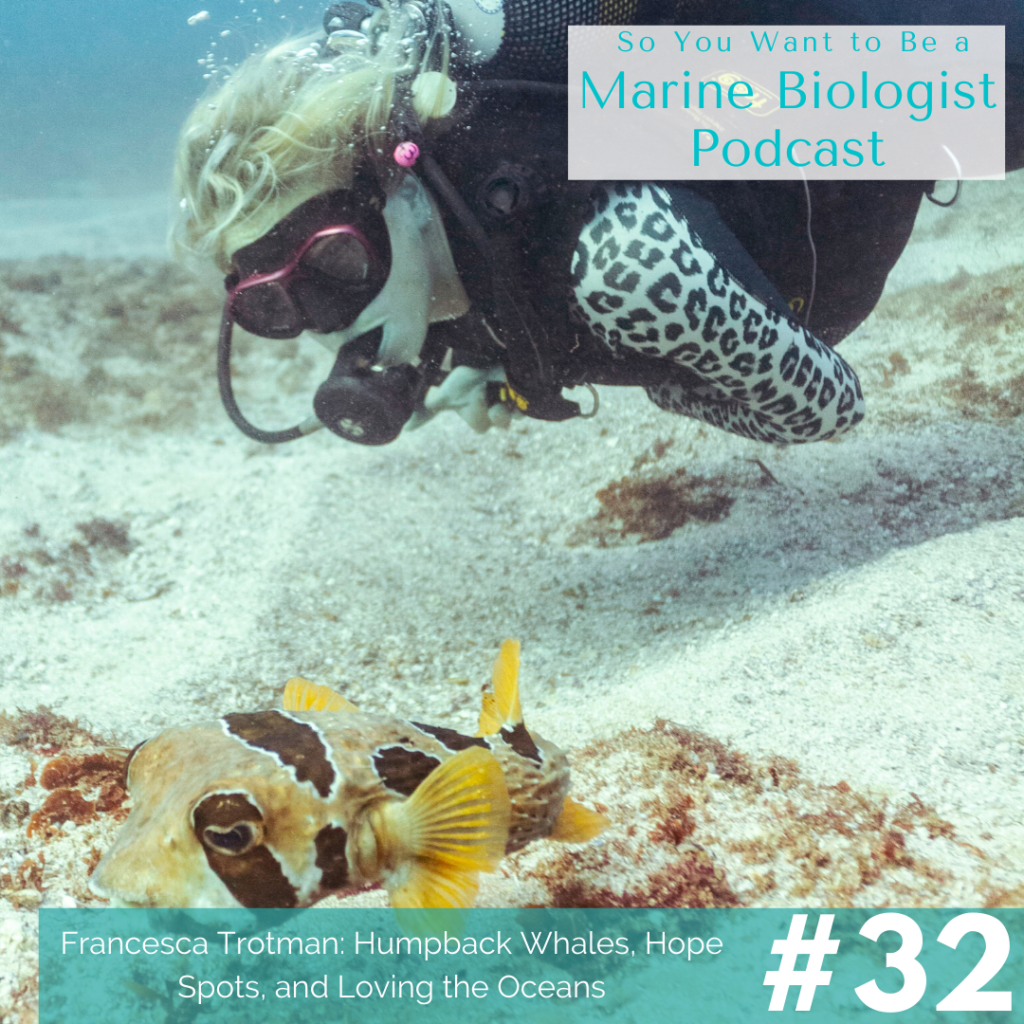Francesca Trotman is the founder of Love the Oceans, a nonprofit located in Mozambique, Africa. Growing up in the UK, Francesca knew from an early age that she wanted to be a marine biologist, but it wasn’t until she was researching shark finning at university that she found her true calling.
Wanting to make a lasting change, Francesca created Love the Oceans. Working with local communities, Francesca hopes to create a sanctioned marine protected area in Jungamo Bay in order to preserve the oceans for generations to come.
Join us as we dive into Francesca’s vital research studying humpback whales, manta rays, and whale sharks. Learn how she creates eco-bricks out of marine plastic, and works with the local communities to help make our oceans a better place. At the end of the episode, we also chat about how you can become involved with this incredible organization.
Connect with Francesca: Instagram|Facebook| Twitter| YouTube| LinkedIn|website
Quick Links
Love the Oceans
Dr. Sylvia Earle
Mission Blue
Hope Spots
Gill Nets
Long Lining
Scalloped Hammerhead
Bullshark
Tiger Shark
Reef Life Survey
Manta Ray
Humpback Whales
Whale Shark
Hydrophone
Show Notes
2:00 How watching shark fisherman in Mozambique sparked a realization in Francesca: it’s not the fisherman that are the problem, it’s the lack of education and awareness. The result? She started her own nonprofit to learn more about the problem and to help create a solution.
7:48Getting involved with Mission Blue and creating a Hope Spot in Jungamo Bay. Learn the different levels of what a Marine Protected Area (MPA) can be, and how Francesa and her team at Love the Oceans are taking a sustainable, bottom-up approach to tackling this issue.
13:37 How Francesa is getting the local community involved in helping to create the MPA through an educational program with a local steward. Lessons include getting both the children and adults involved as well as a sea safety component.
21:53 Love the Oceans scientific research: fisheries. Size, species, sex, and method caught are some of the descriptors that are recorded.
25:07 What data collection looks like: capturing and recording seven years of data before publication and sharing with the government.
26:33 Love the Oceans coral research: How data is collected and what they’re looking for and some of the impacts that they’ve seen, especially on “Manta Reef” (27:03)
35:19 Love the Oceans Megafauna research: what researching humpbacks, manta rays, and whale sharks looks like. Breaking down the song of the humpback whale.
41:06 Love the Oceans Trash Research: categorizing the trash that’s found and alternatives for what they can do with the trash. One of the most common things? Bottle caps. This is scary because the bottles are somewhere, not on the shore.
44:14 What else can you do with trash? Make eco-bricks!
47:11 How you can get involved with Love the Oceans whether as an individual, dive group, or photography group!
50:13 Francesca’s incredible field story of being caught in the middle of a humpback whale bull run on a tiny boat!
55:04 Some of Francesca’s biggest challenges? Getting her friends and family back home to understand why what she’s doing is important and why the ocean matters.
57:06 Today’s ask for the audience: consume less. Less plastic, needless products.
